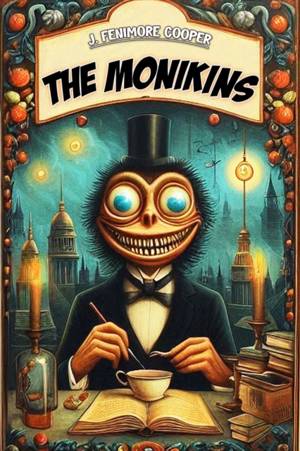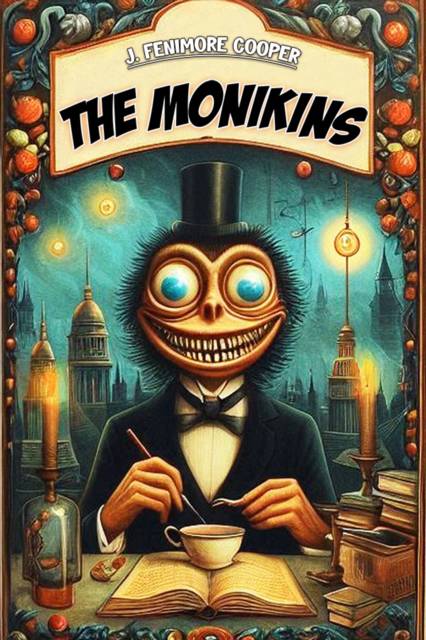
- Afhalen na 1 uur in een winkel met voorraad
- Gratis thuislevering in België vanaf € 30
- Ruim aanbod met 7 miljoen producten
- Afhalen na 1 uur in een winkel met voorraad
- Gratis thuislevering in België vanaf € 30
- Ruim aanbod met 7 miljoen producten
Zoeken
Omschrijving
"The Monikins" is a satirical novel by James Fenimore Cooper, written in the early 19th century, which explores themes of wealth, class, and human nature with a humorous and critical lens. The narrative follows an author as he reflects on his own family history and the eccentricities tied to social status, wealth, and societal norms. The book begins with the discovery of a manuscript that sets the stage for a deeper reflection on the human condition and social motivations. It delves into the absurdities of social hierarchies and materialism, questioning how commerce and relationships intertwine to shape identity and social standing. The story uses humor and satire to expose the flaws in these practices, offering a critique of the materialistic values and social stratification prevalent in the author's world. By blending personal reflections with societal critique, the narrative presents a sharp commentary on the complexities of human behavior, the pursuit of status, and the impact of wealth. The novel's tone is both reflective and comical, making it an insightful exploration of the social dynamics and the folly of human pursuits.
Specificaties
Betrokkenen
- Auteur(s):
- Uitgeverij:
Inhoud
- Aantal bladzijden:
- 336
- Taal:
- Engels
Eigenschappen
- Productcode (EAN):
- 9789369077618
- Verschijningsdatum:
- 1/12/2024
- Uitvoering:
- Paperback
- Formaat:
- Trade paperback (VS)
- Afmetingen:
- 140 mm x 216 mm
- Gewicht:
- 390 g

Alleen bij Standaard Boekhandel
+ 63 punten op je klantenkaart van Standaard Boekhandel
Beoordelingen
We publiceren alleen reviews die voldoen aan de voorwaarden voor reviews. Bekijk onze voorwaarden voor reviews.







